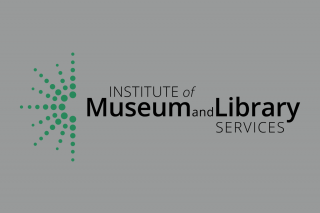“I was a library kid,” says Cyndee Landrum ’25PhD, doctoral candidate in the Library and Information Science PhD. “My mom worked in libraries when I was young. I would meet her after school every day.” Though Landrum didn’t consider librarianship as a career at first, she worked in libraries after completing her B.A. in Linguistics from Northwestern University. “I was out of college and in transition. Working in a library put me on that path.” Since then, Landrum has worked in academic, medical, and public libraries. This March, she was named Acting Director of the Institute of Museum and Library Services (IMLS).
“As a government entity, we demonstrate the value of libraries in the work that we fund,” says Landrum. “Our strategic plan is focused on supporting libraries and museums in their service to the community.” One of the ways IMLS accomplishes this is by demonstrating the ways that libraries address core obstacles and opportunities, including workforce development, supporting literacy, and providing broadband in areas with limited access. “A library is a convener, a facilitator of dialogue and discourse that can solve community problems, in addition to being a resource where people can access information.”
In December 2023, the agency established the First Learning Agenda, stating their commitment to three research and evaluation priorities: child literacy, the future of museums, and equitable grantmaking. “We’re considering the role that libraries play in childhood literacy and investing in national level research to expand our funding in this area,” says Landrum. “We also need to ensure that IMLS funding is supporting institutions of all types and sizes that serve a variety of different communities,” she notes, referring to equitable access to funding.
IMLS is also committed to storytelling that captures the vast and diverse American experience with America250, a nationwide commemoration of America’s 250th anniversary in 2026. “We’ve been thinking about all stories, all people, all places,” says Landrum, “figuring out how we, as an agency, can elevate stories that may have been made invisible. It’s important to tell the full story of our nation over these last 250 years.” She hopes that other institutions will think about the 250th anniversary as a potential opportunity for innovation. “We want to push forward civic engagement and community dialogue, making stories and communities visible to a larger group of people.”
While Landrum may miss direct contact with library patrons, she’s enthusiastic about her leadership role. “[To be an administrator], you have to shift your thinking from practice to enabling others to grow and be successful,” she says. “I have to tap into my own special ability to support others and get satisfaction from that. It’s a difficult shift for some people, but necessary in order to be a successful leader.”
That shift in perspective began with her application process to the PhD in Library and Information Science. “I had to describe myself as a leader. I thought, ‘How do I do this?’” Since then, the coursework has helped her develop her viewpoint. “For me it was learning that leadership is so much broader than a title — thought leadership — we all have a leadership capacity and we have to be in an organization that allows us to use it and be willing to actually use it. Leadership is not always an assigned role. Everyone in an organization can play a leadership role, whether or not they are a manager or director. They may be a strong community engager, having earned a level of respect. Someone who works at the reference desk has gained trust in the community, which allows the library to do its work: connecting, co-creating, and co-curating with the community. That is leadership!”
Landrum’s own research focuses on equity, diversity, inclusion, social justice and the lived leadership experiences of library leaders from underrepresented and underpowered groups. “What I’ve learned in my long doctoral journey is that the credential is very important but the journey is even more important,” says Landrum. “It’s an intellectual journey. You will engage with new ideas you didn’t think were applicable in the library space. I’ve enjoyed the journey.”
While Landrum sees the obvious application of a PhD to prepare the future generation of information professionals, she also sees the broader value of the degree. “There is also value in the PhD of practice, when you think about things like assessment in the library, leadership in the library,” says Landrum. “There are many things you can do with a PhD. It’s up to you to be creative and set your own boundaries and create new boundaries in the work of LIS.”
For her part, she looks forward to seeing the bigger picture. “I’m interested in seeing how seeds get planted,” she says. “From one institution to another, libraries and communities are taking ideas and continuing to iterate and apply them to different contexts, so the value of the work is exponential. It’s valuable for me to see how work grows across the library ecosystem — colleagues engaging in research, asking questions. That gets me jazzed and excited.”

